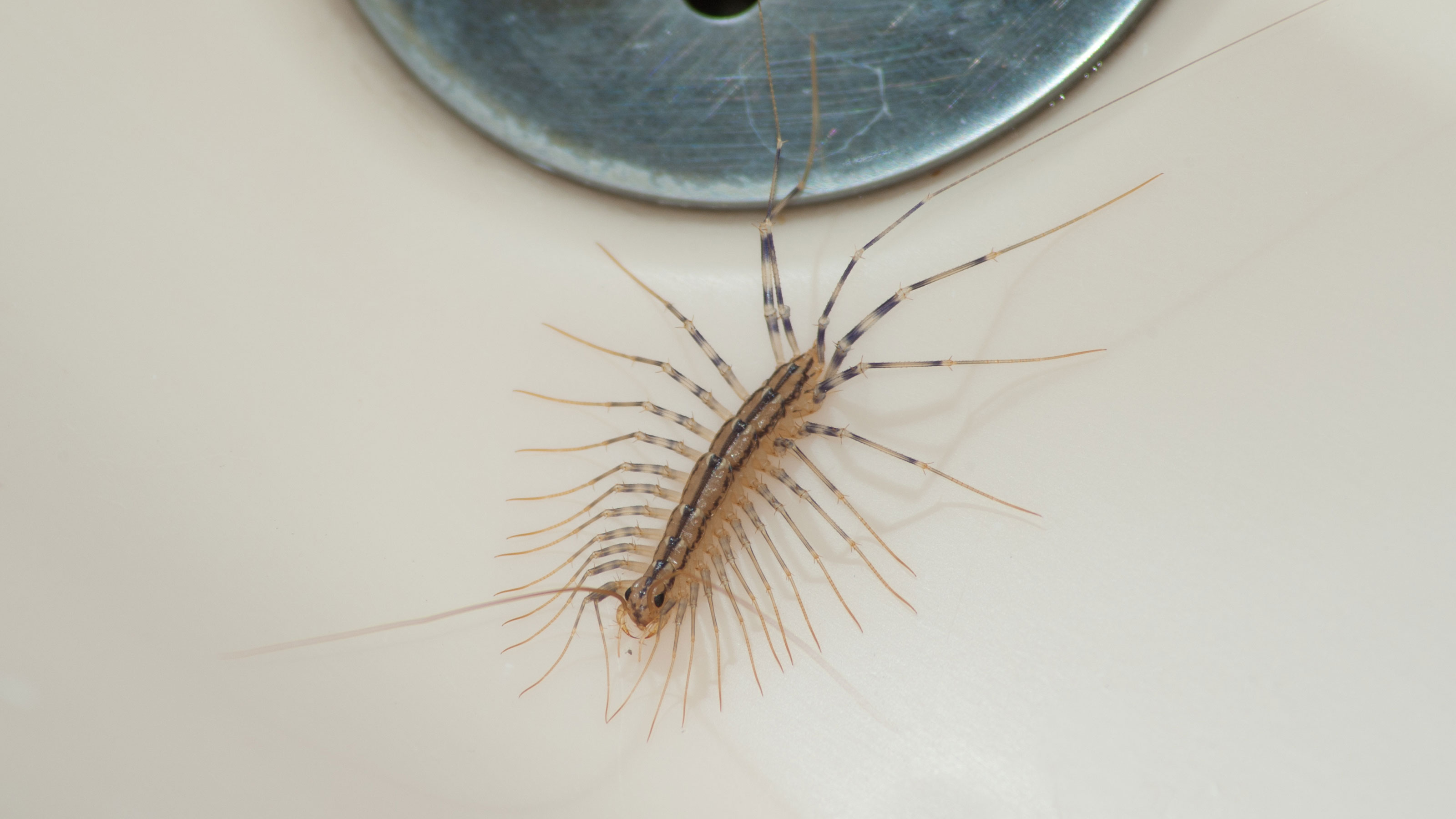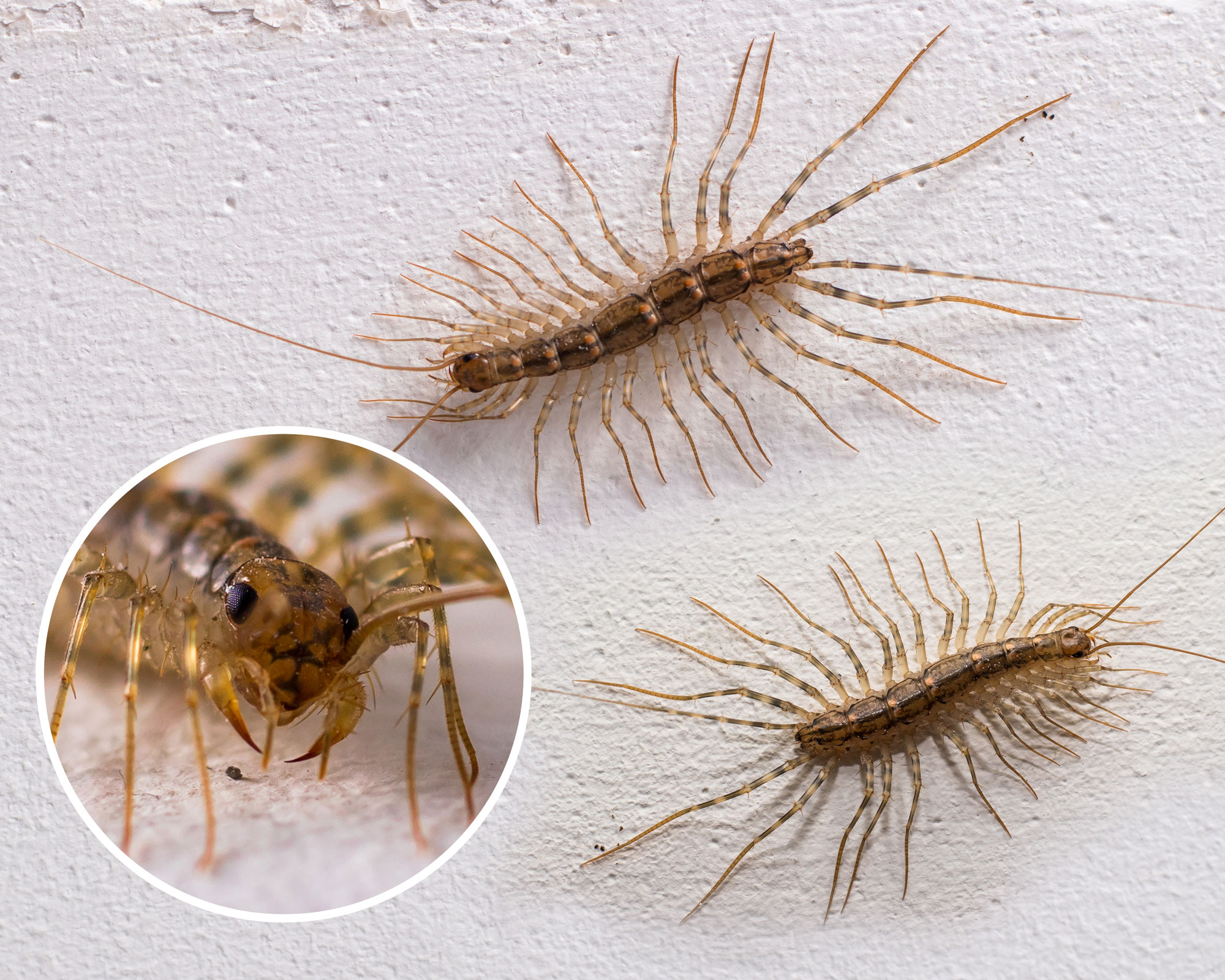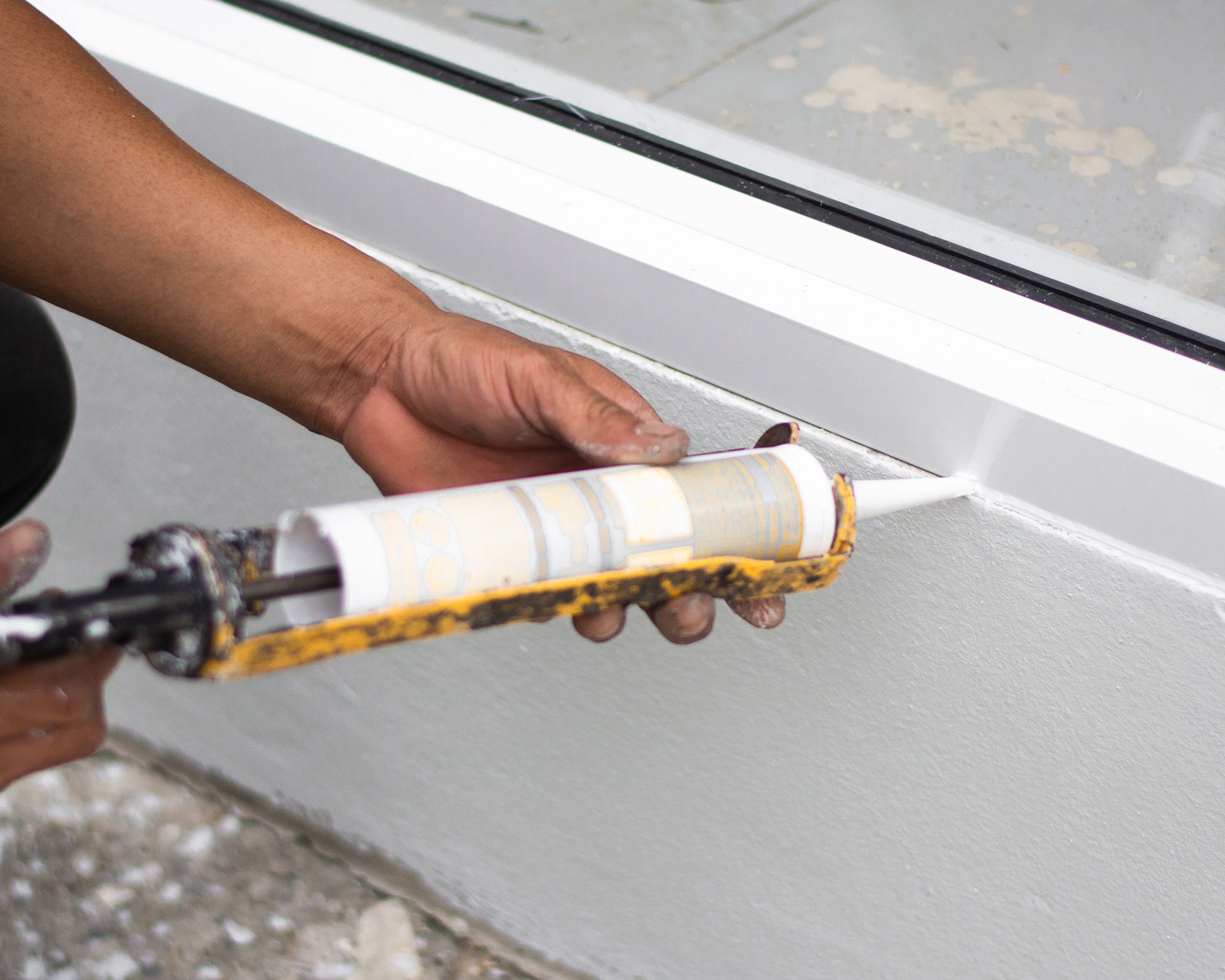
Centipedes are a startling find and they tend to seek out dark, damp spots in basements, bathrooms, and crawl spaces. Luckily, they are not interested in humans, but they are interested in other common pests, such as roaches, spiders, and silverfish.
No one wants to come across one in their home, and there are simple steps you can take to keep centipedes out, from fixing leaks to reducing clutter.
So, what are the most effective methods, do essential oils and salt repel them and can they jump up onto our beds? We asked pest control professionals for the answers.
How to keep centipedes out of your house
Much like silverfish and cockroaches, centipedes enter our homes for food and shelter and are most active at night, so a daytime sighting could indicate many more. Below, we have rounded up preventative measures to stop centipedes from coming back.

1. Tackle any moisture concerns
Because centipedes are attracted to areas where there is moisture, any damp spaces should be treated first. For instance, if you have seen these critters in your basement, a simple solution could be setting a dehumidifier on a timer to keep humidity levels down.
'Keeping the moisture content in the air down below 55% relative humidity will aid in controlling this pest,' says Scot Hodges, an entomologist from Arrow Exterminators. He points out that eggs are laid in these same damp places, as well as behind baseboards or beneath bark on firewood.
It might seem like a hassle, but fixing any plumbing leaks and cleaning out gutters will also keep centipedes away – much more so than laying down a sticky insect trap, at Amazon (although these do work). Viking Pest Control entomologist, Craig Sansig recommends removing leaf litter, mulch, clogged rain gutters, and other organic material around the house to reduce harborage locations of the insects that the centipedes feed upon.
2. Fill in entry points

'The number one way to prevent centipedes and other pests inside your home is exclusion,' asserts Bob Gilbert from Blue Sky Pest Control. 'If you stand outside your door or window and can see light shining out from inside, you need to seal the gaps.'
He also suggests checking the door sweeps, frames, and weather stripping around all doors and windows and repairing them as needed. A tiny gap is all that these flattened pests need to squeeze through into your home, so caulk baseboards and use a sealant, at Amazon to close up any gaps around garage doors, hose penetrations, window frames, and so on.
3. Clean and declutter

Sticking to a regular cleaning schedule at home, and decluttering, will both play a part in preventing a centipede problem from developing in the first place because it means there's less food and fewer places for them to hide. So keep bathrooms clean and dry and reduce condensation by keeping them well-ventilated, with windows open even just a little bit, bearing in mind centipedes like cool temperatures rather than warmth.
'House centipedes forage at night for small insects, their larvae, and spiders to eat, so getting rid of spiders and other small pests through vacuuming will help aid with control,' says Scot Hodges.
'Keep your home tidy, clean, and clutter-free, especially in basements and crawl spaces, where centipedes love to go,' agrees A.H David from Pest Control Weekly. A handheld vacuum cleaner, like the Bissel model below may make quick tidy ups more appealing.
4. Use a pyrethroid-based product
We would much rather prevent them from coming into our homes in the first place, but if you need a quick, DIY pest control solution, there are products that will eliminate them. According to Matt Smith, from Green Pest Management, the best thing to use is a pyrethroid-based product, as these are good kill-on-contact pesticides.
'Look for active ingredients that end in 'thrin" like permethrin, cypermethrin, cyhalothrin, bifenthrin,' comments Tyler Hawkins of Fox Pest Control. 'These products offer a long residual and work against the centipede's biology. House centipedes groom themselves regularly and will ingest the product once they have gotten it on their body due to walking through the area that has been treated.'
FAQs
What scents keep centipedes away?
'Peppermint and tea tree do disrupt pest scent trails, pheromones, and sensory organs, and yes, they can even help kill a pest on contact. Centipedes are no exception,' begins Allan Bossel of Michigan Bed Bug Specialists.
'However, essential oils don’t have the ability to keep pests out of your home, nor are they practical when it comes to preventing and addressing infestation. The very best way to repel centipedes, and many other pests, is to clean your space, get rid of food sources, and consult with a professional.'
Does salt get rid of centipedes?
'Salt is not an effective solution to get rid of centipedes,' says A.H David. 'They have a tough exoskeleton that protects them from desiccation. Stick to the preventative measures mentioned earlier, and targeted treatments, like using a residual insecticide spray around the perimeter of your home, as well as in crevices and cracks where centipedes might enter'
Can centipedes climb up beds?
'Beds can be climbed, and at night the centipede can sense the heat from the person sleeping there and be drawn there,' says pest control expert Bob Gilbert. 'One thing you can do to make it harder for pests such as centipedes to climb into bed with you is to keep blankets and sheets up off the floor and nightstands or other furniture several inches away from the bed itself.
'They may be able to climb the legs of the bed depending on the texture of the bed itself. This area would be a great location for applying a repellant to keep centipedes away.'
Centipedes do not fly or jump and they cannot climb porcelain or glass, which is why house centipedes can sometimes be found in bathtubs.
Much like a lion, centipedes are predators. So remove their food, from common houseplant pests to spider mites, and they will crawl their way elsewhere.







